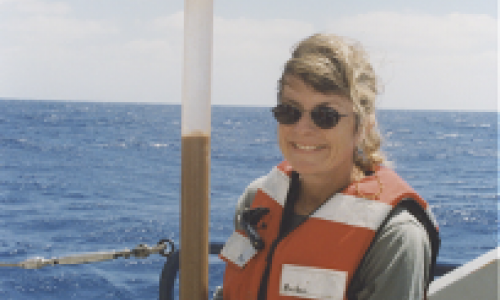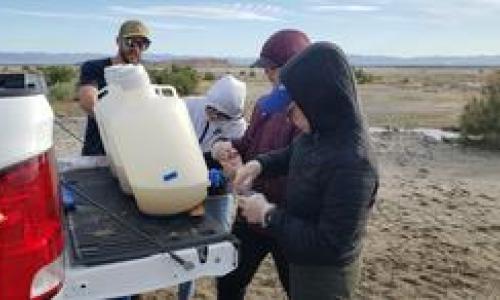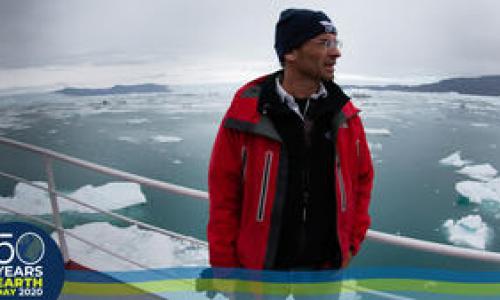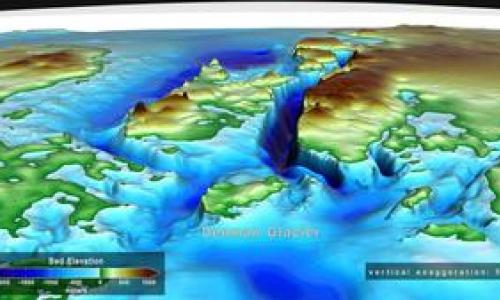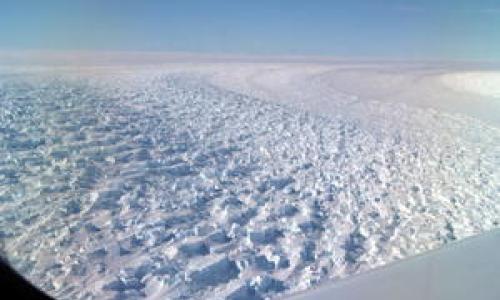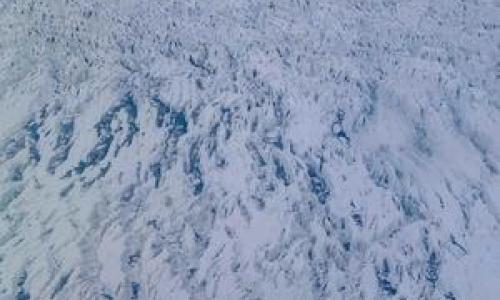Earth System Science
May 20, 2020
Scientists who normally study how human activities impact the planet have been given a rare opportunity over the past few months to observe what happens when industry, transportation and other sources of carbon emissions are curtailed.
May 15, 2020
In this conversation, three experts discussed climate change and air quality during COVID-19. Barbara Finlayson-Pitts (Distinguished Professor of Chemistry and Co-Director of AirUCI, UCI), Steve…
Apr 30, 2020
Irvine, Calif., April 30, 2020 – University of California, Irvine chemical oceanographer and biogeochemist Ellen Druffel has been elected to the National Academy of Sciences, one of the world’s most distinguished scientific organizations.
Apr 22, 2020
Irvine, Calif., April 22, 2020 – On this Earth Day, the United Nations is announcing the start of a new environmental education program for the world’s 1.5 billion youth who are confined to their homes to prevent the spread of COVID-19 and unable to physically attend school.
Apr 22, 2020
Katherine Mackey studies the boundary between the living and the nonliving worlds. She wants to know how those two worlds define one other, as things like aquatic microorganisms can alter the chemistry of the water they live in, and the chemistry of the water can then affect the kinds of organisms able to live there.
Apr 21, 2020
As the pandemic rages, Department of Earth System Science Chair Eric Rignot defines what coronavirus means for climate change and those who study it.
Apr 7, 2020
The COVID-19 pandemic has changed life as we know it with tremendous impact to our work, our homes, families and everything in between. With so many changes, staying motivated and connected to research interests is hard! Through the Physical Sciences #UCIReignite campaign we hope to spur our research community to reconnect with their passion for science.
Mar 31, 2020
The glaciers of Antarctica are melting at unprecedented rates, and a giant canyon in the continent's rocky underbelly could make matters much worse.
Mar 26, 2020
After an unusually warm summer, Greenland’s ice sheet has lost 600 billion tons of ice, according to recently released NASA data.
Mar 23, 2020
Irvine, Calif., March 23, 2020 – East Antarctica’s Denman Glacier has retreated 5 kilometers, nearly 3 miles, in the past 22 years, and researchers at the University of California, Irvine and NASA’s Jet Propulsion Laboratory are concerned that the shape of the ground surface beneath the ice sheet could make it even more susceptible to climate-driven collapse.
Mar 18, 2020
Irvine, Calif., March 18, 2020 – During the exceptionally warm Arctic summer of 2019, Greenland lost 600 billion tons of ice, enough to raise global sea levels by 2.2 millimeters in two months. On the opposite pole, Antarctica continued to lose mass in the Amundsen Sea Embayment and Antarctic Peninsula but saw some relief in the form of increased snowfall in Queen Maud Land, in the eastern part of the continent.
Mar 17, 2020
California’s strict environmental regulations have long concerned some farmers, who say that restrictions around things such as water use are at odds with the agricultural industry. The state’s air pollution standards, though, which are among the strictest in the country, are a boon to farmers: The reductions in ground ozone resulted in $600 million worth of increased crop production annually.



